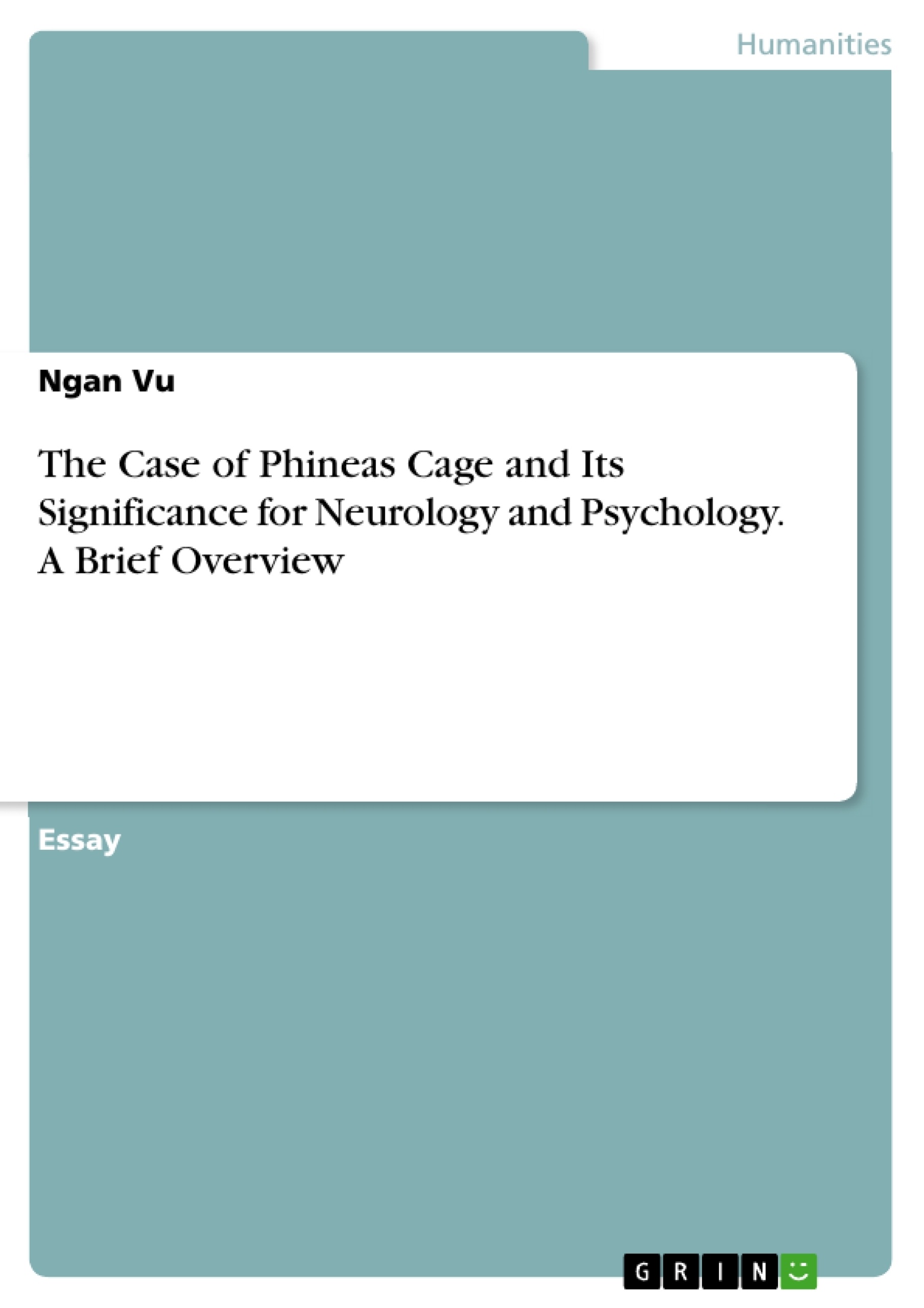The paper gives a brief overview of the case of Phineas Gage. In 1848, a construction accident happened to 25-year-old Phineas Gage - a railroad worker. The accident not only changed Gage’s life but also influenced the history of psychology, neurology and neuroscience.
Table of Contents
- The Case of Phineas Gage
- The Accident
- The Impact of the Accident
- The Case of Phineas Gage's Importance to Psychology
- Rehabilitation and Legacy of Phineas Gage
Objectives and Key Themes
The text aims to tell the story of Phineas Gage, a railroad worker who suffered a severe brain injury in 1848. The case of Phineas Gage is examined to shed light on the impact of brain damage on personality and behavior, the development of neurosurgery, and the understanding of brain function. The text also delves into the subsequent rehabilitation of Phineas Gage and explores the implications of his case for modern treatment of frontal lobe injury.
- The impact of brain damage on personality and behavior
- The development of neurosurgery
- The understanding of brain function
- The rehabilitation of frontal lobe injury
- The legacy of Phineas Gage's case
Chapter Summaries
- The Case of Phineas Gage: This chapter introduces the reader to Phineas Gage and the pivotal accident that changed his life. The accident and its immediate aftermath are described, including the initial medical attention and Gage's remarkable recovery.
- The Accident: This chapter recounts the details of the accident, describing the circumstances and the extent of the damage caused to Gage's brain. The tamping iron used in the accident is described, and the account provides a vivid picture of the event.
- The Impact of the Accident: This chapter explores the effects of the accident on Gage's personality and behavior. The text examines the observations made by Dr. Harlow, who treated Gage, and discusses the significant changes in Gage's demeanor after the injury. The chapter also touches upon the controversy surrounding the extent to which Gage's personality actually changed.
- The Case of Phineas Gage's Importance to Psychology: This chapter delves into the significance of Gage's case for the field of psychology. The text discusses how the case led to theories about brain function and personality, as well as the evolution of neurosurgery. It also explores the ethical considerations surrounding psychosurgery and the case's role in shaping our understanding of brain specialization.
- Rehabilitation and Legacy of Phineas Gage: This chapter explores the remarkable recovery of Phineas Gage and his subsequent life after the accident. The text discusses his ability to hold jobs and adapt to social situations, highlighting the resilience of the human brain. It also explores the enduring impact of Gage's case on modern treatment of frontal lobe injury.
Keywords
The case of Phineas Gage, brain damage, frontal lobes, personality, behavior, neurosurgery, psychosurgery, brain function, rehabilitation, frontal lobe injury, case study, psychology, neuroscience.
- Quote paper
- Ngan Vu (Author), 2019, The Case of Phineas Cage and Its Significance for Neurology and Psychology. A Brief Overview, Munich, GRIN Verlag, https://www.grin.com/document/1168010




